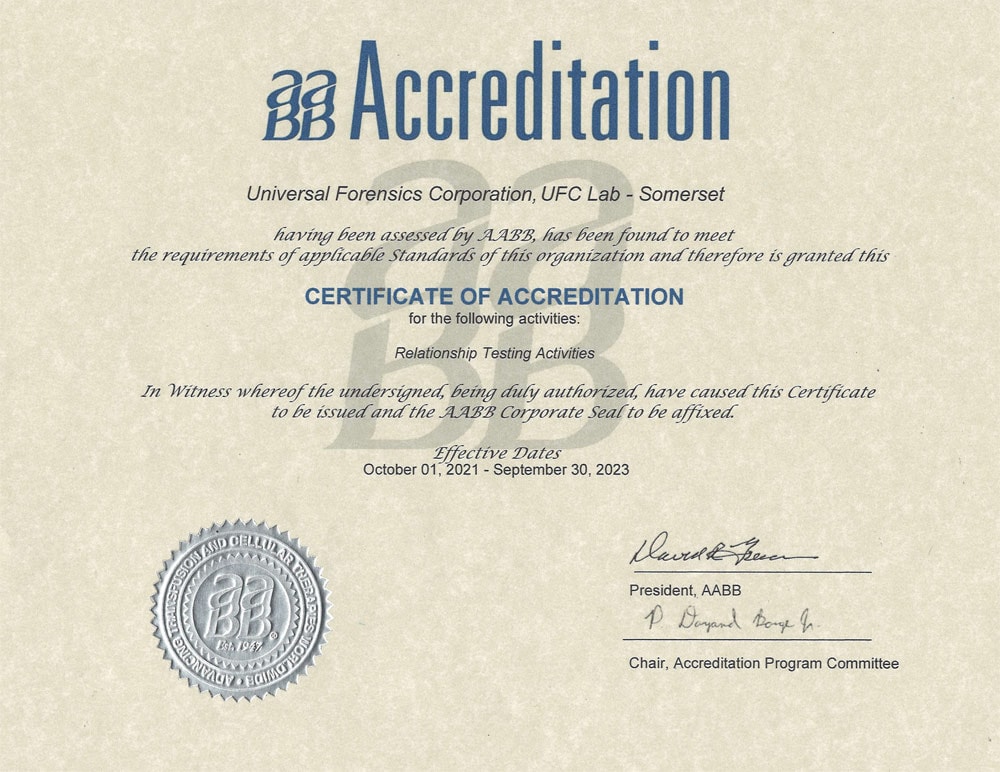Informational vs. Legal DNA Testing: Key Differences Explained

According to YouGov, about 21% of people in the U.S. report taking a mail-in DNA test.
Most do so out of curiosity–exploring ancestry, health traits, or family connections. These tests are usually for personal use only and differ significantly from legal DNA testing. However, if you’re like most people, you might assume all DNA tests are the same.
After all, they all analyze your DNA–so how different could they be? But that assumption is far from the truth. Continue reading to discover key differences between DNA tests and find which option fits your needs.
Purpose
Informational DNA testing is designed for personal use. Most people take these tests to learn about their:
- Ancestry
- Health traits
- Potential genetic risks
- Wellness profile
- Biological connections with relatives
It’s all about gaining insight, not proving anything officially. The informational DNA test benefits often include simple reports that explore your background, traits, or family matches without involving legal systems.
Legal DNA testing serves a specific, official purpose. It’s often required in:
- Child custody cases
- Immigration matters
- Probate disputes
- Paternity verification
- Adoption processes
Results are used in legal documents or court presentations. For legal DNA testing, this is the only test that meets court and government standards.
For reliable DNA testing services, consider ReliaLab Test. We’re a trusted national provider offering secure and timely DNA, drug, and alcohol testing services. Our team supports both individuals and organizations with professional testing solutions designed for legal and workplace needs.
Cost
Informational DNA tests are typically less expensive. Kits are available online or in stores and often include free shipping and online results.
Because there’s no lab oversight or third-party involvement, the cost stays low. People choose this route for quick, affordable answers when legal proof isn’t needed.
Legal DNA tests cost more due to their strict protocols and documentation. You also pay for sample collection by a trained professional. When the results are intended to be court-admissible DNA, the added cost ensures accuracy, legal validity, and proper handling of every step in the process.
Turnaround Time
With informational DNA tests, the process is quick, as no in-person appointment or identity check is needed. After you mail the sample, results are usually ready within two to four weeks. Many people prefer this faster timeline when they want personal answers without waiting.
Legal DNA testing often takes longer due to the extra steps involved. The timeline may be extended because it requires:
- Scheduling appointments
- Identity verification
- Proper documentation
- Secure handling of the sample
- Chain-of-custody tracking
However, some labs do offer expedited services. The added steps help uphold the standards required for DNA testing for legal purposes, where accuracy and proper documentation outweigh speed.
Report Format
Informational DNA test results are delivered digitally, often in an interactive format. You might receive:
- Colorful graphs
- Ancestry maps
- Genetic traits
- Wellness breakdowns
- Easy-to-understand language
These reports are made for casual users and typically focus on education and exploration.
Legal DNA testing reports are simple and formal. They contain:
- Data tables
- Genetic matches
- Clear conclusions, like whether two individuals are biologically related
- Verified personal details
- Official testing summaries
Courts, attorneys, and agencies use them confidently. Their structure and validation make them court admissible DNA and reliable in legal matters.
Chain of Custody
With informational testing, there’s no official record of who collected the sample or when. You collect it yourself, at home, and mail it to the lab. Because the process isn’t monitored, there’s no verifiable chain of events to confirm authenticity.
In legal testing, the chain of custody is a critical part of the process. A trained collector logs each step, from identity confirmation to sample sealing, and documents every handoff. The importance of this chain is what makes the difference between DNA tests so significant in legal scenarios, where trust and traceability are non-negotiable.
Collector
For informational tests, you act as the collector as you swab your cheek or spit in a tube, then mail the sample. No one checks your ID or verifies your actions. The process feels simple and works when you only want personal answers without needing legal proof.
Legal DNA tests involve a certified third-party collector who handles the entire process. They confirm your:
- Identity
- Sample collection
- Sample labeling
- Packaging
- Documentation
Their involvement prevents doubts about sample ownership. Courts and legal agencies rely on this structure during DNA testing for legal purposes like custody or immigration verification.
Sample Identification
With informational tests, the sample connects to a barcode, not your verified identity. The lab only uses the information you enter online.
Although the process feels simple, it lacks the checks needed for official use. This process heavily relies on the honesty of the individual submitting the kit.
Legal DNA testing requires a government-issued ID at the time of collection. A professional will:
- Records your identity
- Verifies your details
- Links your ID to the sample
- Logs the collection event
- Confirms sample handling
That level of verification ensures accuracy and credibility in legal matters, where identity confirmation carries serious weight.
Confidentiality and Record Keeping
Informational testing companies often collect and store your data for research or commercial use. Some offer opt-out options, but not all.
Fewer legal protections increase the risk that your results could end up in unexpected places. Privacy policies differ, so reviewing the details matters.
Legal DNA testing labs follow strict privacy standards. Staff protect records and only release results to authorized individuals.
Courts and legal authorities expect confidentiality and accurate reporting. Labs build their systems around security and trust, especially when the information becomes part of legal decisions or official investigations.
Legal DNA Testing and How It Differs From Personal Tests
Legal DNA testing follows strict procedures to ensure accuracy, identity verification, and chain of custody. Informational testing focuses on personal insights and convenience but lacks legal reliability. Understanding the difference can help you choose the right option for your needs.
At ReliaLab Test, we offer trusted DNA testing solutions supported by more than 15 years of experience. Our certified team works across a network of over 15,000 collection site clinics nationwide.
We handle everything from workplace to legal testing with care and precision. We focus on reliability, compliance, and fast turnaround. Contact us if you’re seeking a dependable DNA testing service.








